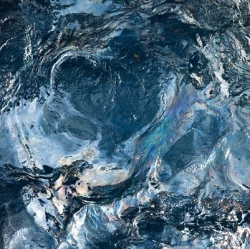
These show that chemicals, including methane and arsenic, have been found more often in water wells near natural gas extraction sites. Despite this, the actual causes of the contamination are not clear.
In the UK, water companies say drinking supplies must be protected "at all costs" if fracking becomes commonplace.
Hydraulic fracturing’s impact on water is a concern because the gas and oil they aim to extract is normally quite deep in the earth compared with our drinking supplies.
The fracking pipes go through the drinking water aquifers and there are worries that any cracks in the lining of the drilling wells could contaminate supplies.
In their study, researchers from the University of Texas in Arlington found increased levels of arsenic in groundwater near fracking sites in the Barnett Shale, an area with around 16,000 active gas wells.
The researchers took samples from 100 private wells and found levels of metals, including arsenic, selenium and strontium that were way above the safe limits for drinking water.
These elements do occur naturally in the region but the authors stated that the drinking wells that exceeded the safety levels were within 3km of a natural gas well, and that these levels got lower and lower the further they sampled from the extraction site.
In short, the wells that were near fracking sites had levels of arsenic around 18 times higher than areas that did not have gas extraction via this technique.
